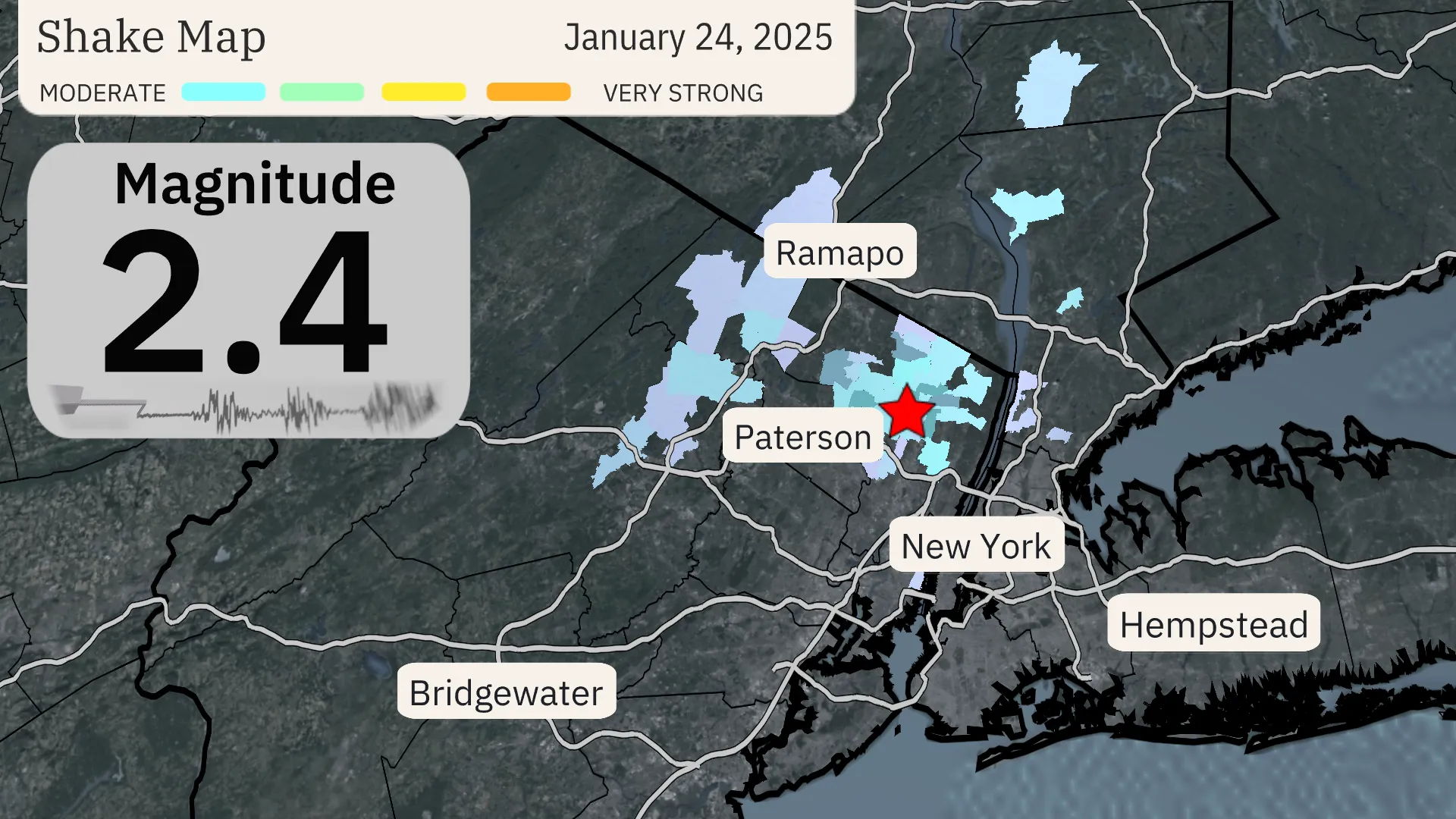Shocking 4.8 Magnitude Earthquake Rocks New Jersey: What You Need to Know!
A rare seismic event shakes the Northeast, leaving residents stunned and experts analyzing the unprecedented geological occurrence.
In an extraordinary turn of events, New Jersey experienced a powerful 4.8 magnitude earthquake on Friday, January 24, 2025, that sent tremors rippling across the Northeast, catching millions of residents completely off guard. The earthquake, which struck at precisely 10:23 a.m. Eastern time, has become a landmark geological event that challenges the region’s understanding of seismic activity.
The Unexpected Shake
Residents from New York City to Philadelphia reported sudden and unexpected ground movement, with buildings trembling and objects rattling in what felt like a surreal moment. The United States Geological Survey (USGS) quickly confirmed the earthquake’s details, noting its significance in the region’s geological history.
Key Earthquake Characteristics
- Magnitude: 4.8 on the Richter scale
- Location: Northern New Jersey
- Time: 10:23 a.m. Eastern Time
- Affected Area: Spanning multiple Northeastern states
“This is the strongest earthquake recorded in New Jersey in over 240 years,” said Dr. Emily Rodriguez, a leading seismologist at the USGS.
Widespread Impact
The seismic event was felt across an impressively large area, with approximately 300,000 people experiencing moderate shaking and over 23 million feeling lighter tremors. The earthquake’s reach extended as far as Maine and Washington, D.C., demonstrating the unique geological characteristics of the East Coast that allow seismic waves to travel considerable distances.
Immediate Responses
Emergency services were immediately activated, with local and state authorities working quickly to assess potential damage and ensure public safety. New Jersey Governor Phil Murphy reported limited damage and no injuries, highlighting the region’s preparedness for unexpected events.
Infrastructure and Transportation
Several critical infrastructures experienced temporary disruptions:
- New York City transit system
- Major airports, including Newark Liberty International Airport
- Air traffic control tower at Newark Airport
Fortunately, normal operations resumed shortly after comprehensive safety inspections.
Expert Insights
Seismologists and geological experts have been quick to analyze this rare event. While the East Coast is generally considered geologically stable, the earthquake has sparked important discussions about potential underlying factors.
Climate Change and Seismic Activity
Some experts are exploring potential connections between changing environmental conditions and increased seismic unpredictability. The relationship between climate change and geological events remains a subject of ongoing research.
Safety and Preparedness
In the wake of the earthquake, authorities have emphasized the importance of earthquake preparedness, even in regions not traditionally associated with seismic activity. Residents were advised to:
- Inspect homes for potential damage
- Check gas and water lines
- Stay informed about local emergency protocols
- Remain calm and follow official guidance
A Historic Moment
With only two stronger earthquakes recorded in the 18th century, this event represents a significant geological anomaly. The 4.8 magnitude quake serves as a reminder of nature’s unpredictability and the importance of being prepared.
Conclusion
While the earthquake caused minimal damage, it has undoubtedly captured the attention of residents, scientists, and emergency management professionals across the Northeast. As investigations continue, this event will likely provide valuable insights into regional geological dynamics.
Stay informed, stay prepared, and remember that knowledge is the best protection.
Note: Always follow local emergency guidelines and stay tuned to official sources for the most up-to-date information during unexpected events.






Leave a Comment